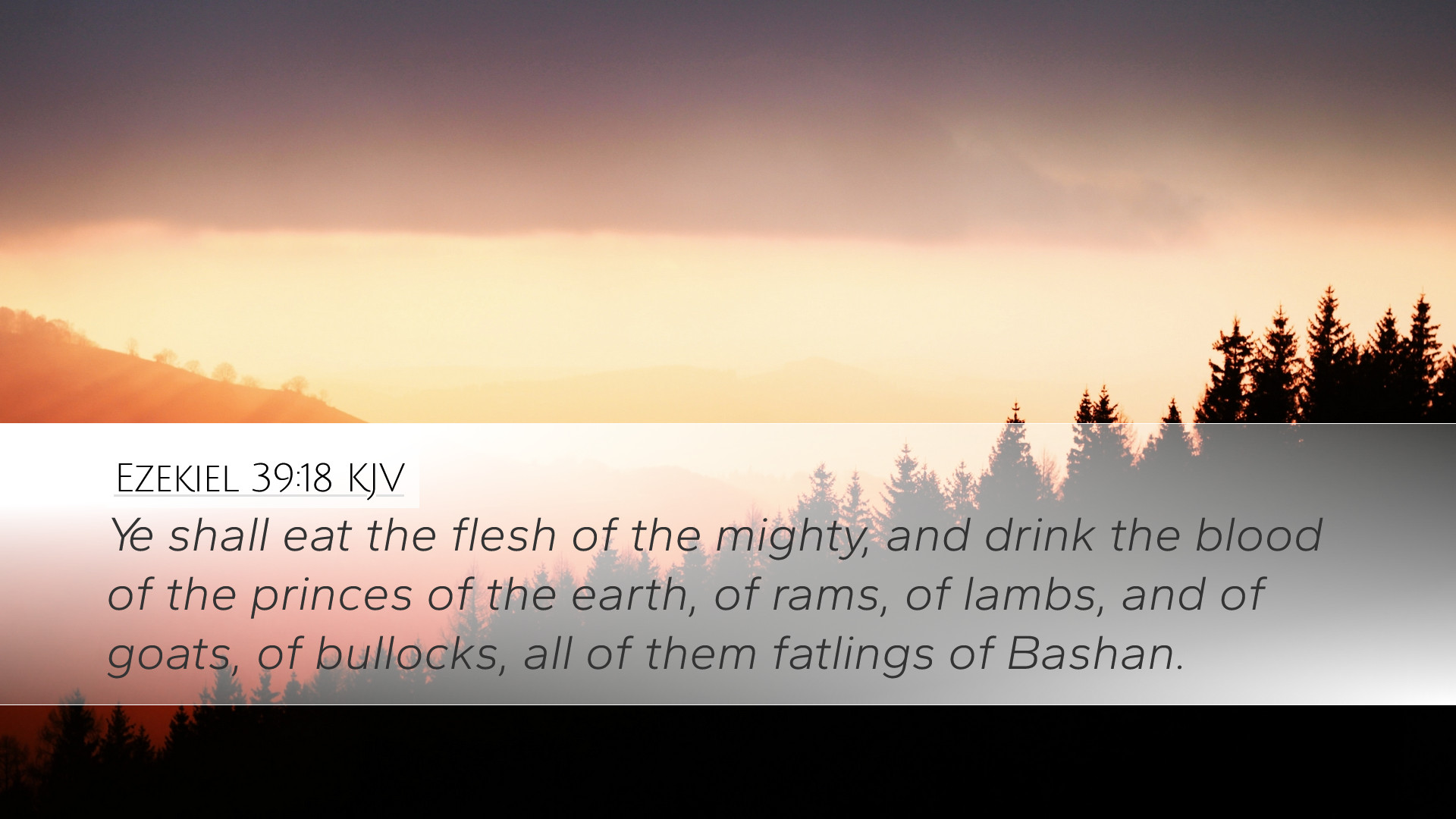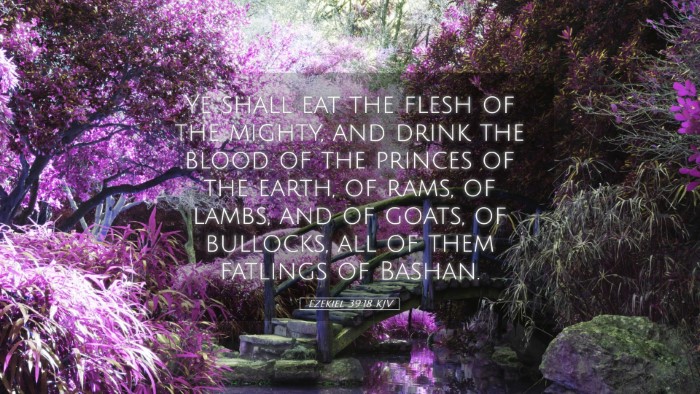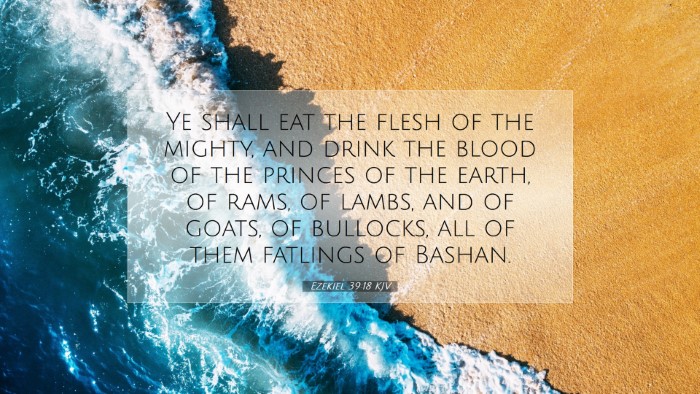Ezekiel 39:18 Commentary
Bible Verse: “Ye shall eat the flesh of the mighty, and drink the blood of the princes of the earth…” (Ezekiel 39:18, KJV)
Contextual Overview
The Book of Ezekiel contains prophecies concerning the judgment of Israel, the destruction of Jerusalem, and the eventual restoration of God’s people. Ezekiel 39 addresses the final defeat of Gog and Magog, symbolizing the nations that oppose God and His people. The imagery presented in verse 18 serves to emphasize the desolation that will follow their downfall, as this is not merely a physical defeat but ultimately a divine judgment.
Interpretational Insights
1. Symbolism of Flesh and Blood
Matthew Henry highlights that eating the flesh of the mighty and drinking the blood of princes signifies consuming the resources and strength of the defeated enemy. It reflects the complete humiliation and destruction of those who opposed God’s people. This imagery encapsulates the idea that God's enemies will be utterly vanquished and their power stripped away.
2. The Feast of Judgment
Albert Barnes points out that this verse could symbolize a 'feast' representing the bounty raised even amid desolation. It emphasizes God’s provision for His people after the judgment of their enemies. The vivid imagery of a feast is particularly potent, as it not only signifies victory but also denotes an invitation towards abundant life following the triumph over adversaries.
3. A Call to Reflection on Divine Justice
Adam Clarke stresses the importance of understanding the context of divine justice embedded in this passage. The description serves as a warning to nations and individuals who turn against God's purposes. Clarke notes that this judgment is both an act of divine justice against the oppressors and a means of purification for Israel.
Theological Implications
1. God’s Sovereignty
The defeat of Gog signifies God’s sovereignty over nations. Both Henry and Clarke reflect on the assurance that, irrespective of the apparent strength of earthly powers, God orchestrates the outcome of history for His purpose. This reinforces the assurance believers have in God's ultimate victory over evil.
2. The Nature of Spiritual Warfare
The spiritual implications of Ezekiel 39:18 indicate that the struggles faced today also find their reflection in the cosmic battle between good and evil. As believers partake in this ‘feast’ of triumph, they are reminded that the battle does not belong to them, but to God. In this spiritual warfare, a greater understanding of God’s might provides strength and courage for believers facing current challenges.
3. Messianic Associations
Some scholars observe how this passage points toward messianic themes, interpreting the ultimate triumph of God as being fulfilled in Christ. The defeat of the ‘mighty’ may align with New Testament teachings about Christ's victory over sin and death, representing the eternal victory that believers share in Him.
Practical Applications for Believers
1. Encouragement in Trials
This verse serves as a reminder of God's ultimate control and judgment over those who oppose Him. For pastoral application, it encourages believers that current trials are not in vain; ultimately, God's righteous judgment prevails. In times of challenge, referring to this hope can bolster the faith of the congregation.
2. Call to Righteousness
Henry reflects on the need for self-examination in light of the judgment detailed in this passage. Pastors and theologians can use this text to invoke a call toward righteousness and adherence to God’s ways. It serves as a reminder that divine justice is not arbitrary but rooted in God’s holiness which demands a response of faithfulness from His people.
3. Assurance of God’s Provision
The closing theme of provision within judgment is critical for pastoral ministry. As God’s people are assured of His continued provision, this serves as a powerful message of hope. Conclusively, while there may be present conflicts, believers can trust in God’s abundance that will follow His judgments.
Conclusion
Ezekiel 39:18 not only touches upon the themes of divine judgment and victory but also carries profound implications for understanding God's character and the nature of faith. For pastors and scholars alike, embracing these insights cultivates a deeper appreciation of God’s sovereignty and justice throughout history, urging believers towards steadfastness amid present adversities.


